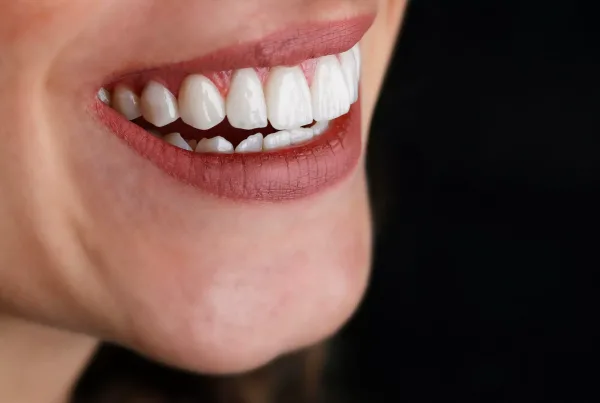Teeth whitening is a dental procedure used to lighten the color of teeth and remove stains and discoloration. This procedure is also known as teeth bleaching. Teeth can become discolored or stained due to a variety of factors, such as aging, consuming certain foods or drinks, smoking, and poor dental hygiene.
Teeth whitening can be done in a dental office or at home using various methods. In-office teeth whitening typically involves the application of a strong bleaching agent to the teeth, which is activated by a special light. This procedure is usually completed in one or two visits, and the results are immediate and noticeable.
At-home teeth whitening options include over-the-counter products, such as whitening toothpaste, strips, and gels, as well as custom-fitted trays provided by a dentist. These products contain lower concentrations of bleaching agents than in-office treatments, and the results may take longer to achieve.
Teeth whitening is generally considered safe, but it may cause temporary tooth sensitivity and gum irritation. Some people may experience more severe side effects, such as chemical burns or permanent tooth damage, if they misuse or overuse teeth whitening products.
It is important to consult with a dentist before undergoing any teeth whitening procedure to determine if it is appropriate for your dental health needs. Your dentist can also recommend the best teeth whitening option for you and provide instructions on how to use it safely and effectively.
Teeth whitening can be an effective way to remove stains and discoloration from teeth, but the effectiveness of the procedure can vary depending on several factors, such as the cause and severity of the discoloration, the method used for whitening, and the individual’s overall dental health.
In-office teeth whitening procedures can be more effective than at-home treatments because they use stronger bleaching agents and are performed under professional supervision. In-office whitening can typically lighten teeth by several shades in a single visit, and the results can last for up to a year or more with proper oral hygiene and regular touch-ups.
At-home teeth whitening products can also be effective, but they may take longer to achieve noticeable results and may not be as effective on severe discoloration. Over-the-counter whitening products may lighten teeth by a few shades, while custom-fitted trays provided by a dentist can achieve more significant results.
However, it is important to note that teeth whitening is not a permanent solution and the results may fade over time, especially with exposure to staining agents such as coffee, tea, and tobacco. Touch-up treatments may be needed periodically to maintain the results of teeth whitening.
It is also important to consult with a dentist before undergoing any teeth whitening procedure to determine if it is appropriate for your dental health needs and to ensure that the procedure is performed safely and effectively.





